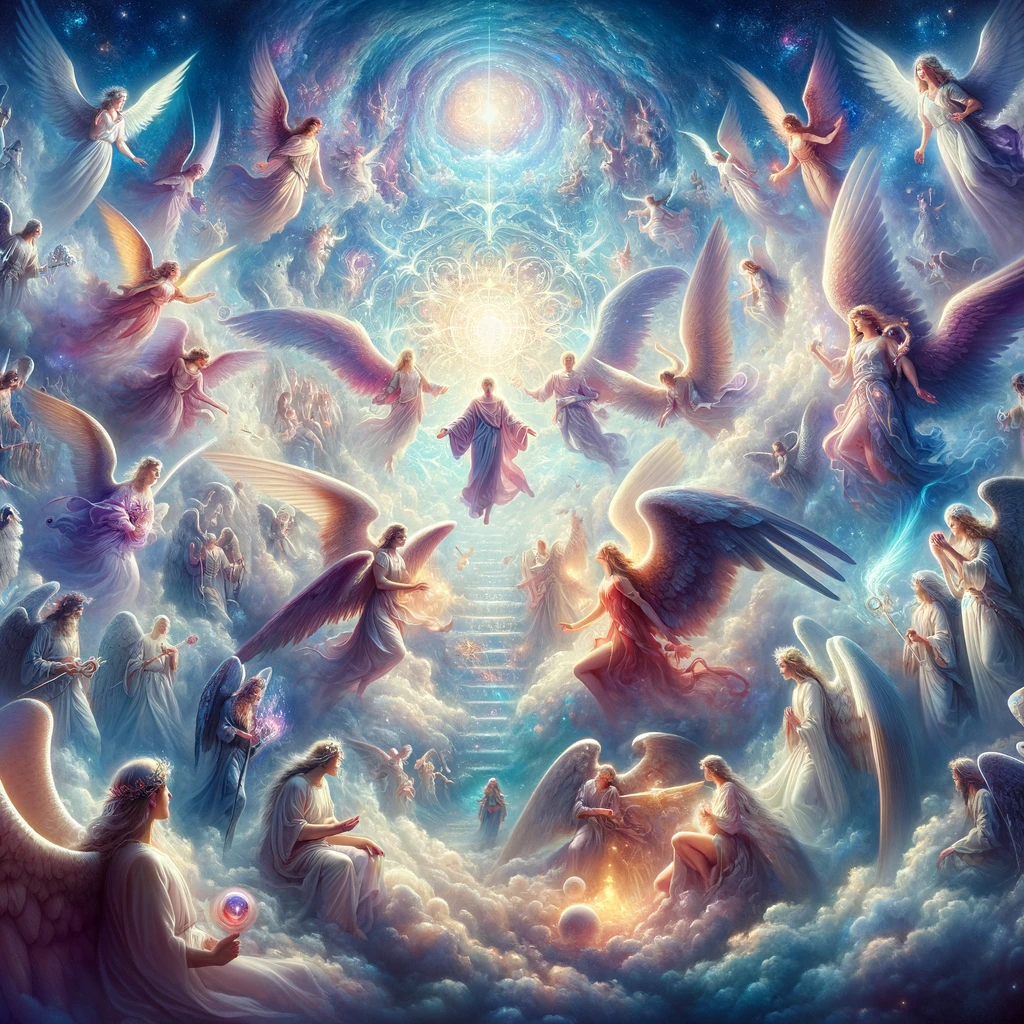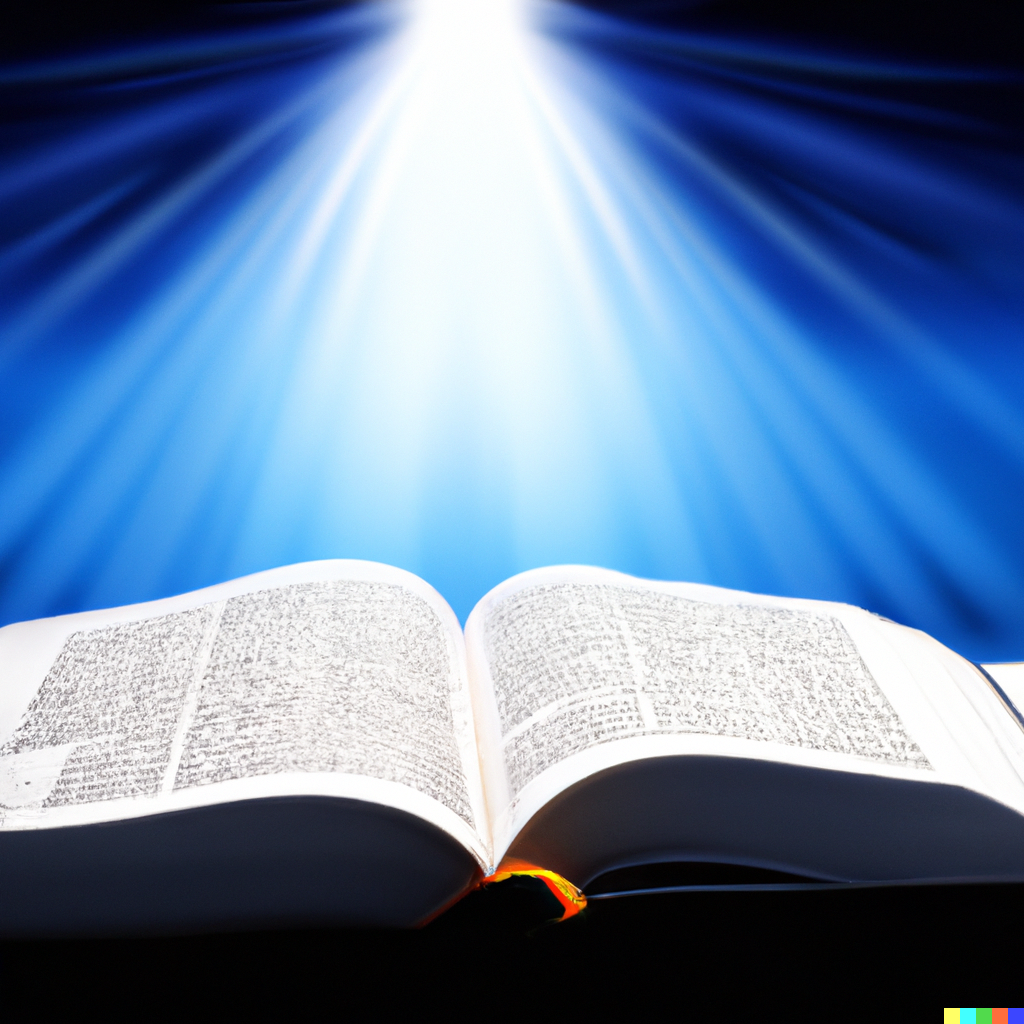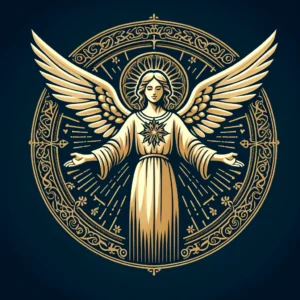
Angelology
Step into the enchanting world of Eastern Orthodox theology, where angelology takes center stage.... View more
Angels
-
Angels
Guardian Angels: Divine Guidance and Protection The most recognized choir, guardian angels assigned to protect and guide individuals, portrayed as human-like figures with wings.
“A similar method must be followed in treating of the angels; nor are we to suppose that it is the result of accident that a particular office is assigned to a particular angel: as to Raphael, e.g., the work of curing and healing; to Gabriel, the conduct of wars; to Michael, the duty of attending to the prayers and supplications of mortals. For we are not to imagine that they obtained these offices otherwise than by their own merits, and by the zeal and excellent qualities which they severally displayed before this world was formed; so that afterwards, in the order of archangels, this or that office was assigned to each one, while others deserved to be enrolled in the order of angels, and to act under this or that archangel, or that leader or head of an order. All of which things were disposed, as I have said, not indiscriminately and fortuitously, but by a most appropriate and just decision of God, who arranged them according to deserts, in accordance with His own approval and judgment: so that to one angel the Church of the Ephesians was to be entrusted; to another, that of the Smyrnæans; one angel was to be Peter’s, another Paul’s; and so on through every one of the little ones that are in the Church, for such and such angels as even daily behold the face of God must be assigned to each one of them; and there must also be some angel that encampeth round about them that fear God. All of which things, assuredly, it is to be believed, are not performed by accident or chance, or because they (the angels) were so created, lest on that view the Creator should be accused of partiality; but it is to be believed that they were conferred by God, the just and impartial Ruler of all things, agreeably to the merits and good qualities and mental vigour of each individual spirit.” (1)
“If angels function in the schema of divine mediation, their role is essentially that of servant (Heb. 1:14). The service of angels in special revelation and divine redemption is the second scriptural rationale for angels. Man is the earthly servant of God; Jesus Christ is the theanthropic servant of God (Phil. 2:5f.); and the angels are the heavenly servants of God, for they are always represented as coming from heaven and returning to heaven. Angels serve God in the administration of his kingdom and his redemption (Dan. 8:16; Luke 1:19, 26, and so forth). The range of their service is phenomenal. From the Old Testament incidents in which they appear like ordinary men (Judges 13), we move through the biblical record of their actions to the great dramatic pictures of the book of Revelation where angels assume cosmic powers. The association of Jesus Christ with angels is remarkable—compare his birth narratives, his temptation, his experience in Gethsemane, his resurrection, his return with great hosts of angels. In this connection is the remarkable Old Testament revelation of the angel of the Lord. Because the angel of the Lord is both a representation and a type there is some obscurity attached to the subject matter which an honest exegesis will not overlook. But the angel-form of the Mighty One who comes in the service of God is a happy anticipation of Philippians 2:5ff., where the exalted Son of God empties himself to take the form of a servant. One other remark is pertinent to the servant-role of angels: everywhere in Scripture their worship or veneration is sternly rebuked (cf. Col. 2:18; Rev. 19:10).” (2)
“Angels are moral agents and accountable beings, or they could not be holy, and could not have sinned, as many of them have done. They were doubtless, placed when created, in a state of probation, as man was. Indeed, every rational creature, made under a moral law, is naturally in a state of probation; that is, obedience is required of him, and a reward promised, and a penalty threatened in case of disobedience. All creatures are mutable, and, therefore, all creatures, however exalted, are capable of sinning when left to themselves. Unless God, in infinite kindness and condescension, limited the period of probation, it would last forever; as forever, the creature left to himself would be liable to sin: but it has pleased the goodness of God to limit the probation of his moral subjects to a certain period, probably short, after which, those who stand the trial and retain their integrity, are confirmed in a state of immutable holiness and happiness. Those angels who kept their first estate, and resisted the temptation by which many of their companions were seduced from their allegiance, are not only called “holy angels,” but “elect angels.” What proportion of the number fell is not revealed; though the Romanists pretend to determine this and many other points, for which they have no authority from Scripture. The number of good angels, we know, is very great. Christ said, that he could pray to his Father, and he would send to his aid more than twelve legions of angels; which would be more than seventy thousand. And at the birth of our Saviour, there were present with the Shepherds, a great multitude of the heavenly host. And in the book of Daniel and of the Revelation, we read of “thousands of thousands and ten thousand times ten thousand.” And in the 12 chapter of the Hebrews, the apostle speaks of “an innumerable company of angels.”” (3)
There are two difficult terms that deserve particular attention: “sons of God” and “the angel of the Lord.” In Genesis 6:2 we read that the sons of God took wives from among the “daughters of men.” Some scholars have been led to conclude that these sons of God were actually angels who mated with human women to produce a race of mighty men. Among the arguments advanced in favor of this interpretation are that angels are referred to as sons of God elsewhere in Scripture (Job 1:6; 2:1; 38:7) and that there was apparently a superhuman race on the earth at this time (v. 4). On the other hand, the fact that there was also great wickedness which so displeased God that he sent the flood has led to the suggestion that the sons of God may in fact have been fallen angels. But the suggestion that angels (whether good or fallen) mated with human women and produced children runs contrary to what Jesus taught us about angels (Matt. 22:30). In light of this, the interpretation that understands the “sons of God” in Genesis 6:2 to be sons of Seth who mated with pagan descendants of Cain seems to present less difficulty than does the interpretation of “sons of God” as angels, although neither view can be held dogmatically. It is necessary to conclude that there simply is not enough evidence to justify using this passage as a source of information about angels. This should not be considered a case of “evangelical demythologizing,” as has been suggested by the author of a defense of the traditional interpretation that the “sons of God” in Genesis 6:2 are angels. It is simply a matter of remaining skeptical in the face of insufficient evidence. We also face the problem of the identity of “the angel of the Lord.” In the Old Testament there are numerous references to the angel of the Lord or “the angel of God” (Gen. 16:7–14; 18; 22:11, 14–15; 24:7, 40; 32:24–30; 48:15–16; Exod. 3:2; 14:19; 23:20–23; 32:34–33:17; Judg. 2:1, 4; 5:23; 6:11–24; 13:3, etc.). The problem comes in the fact that while there are numerous passages where the angel of the Lord is identified with God, there are many other passages where the two are distinguished. Examples of passages in which the two are equated are Genesis 31:11 and 13, where the angel of the Lord says, “I am the God of Bethel,” and Exodus 3:2 and 6, where the angel of the Lord tells Moses, “I am the God of your father.” Examples of passages in which the two are distinguished are Genesis 16:11, where the angel of the Lord says to Hagar, “The Lord has heard of your misery,” and Exodus 23:20, where the Lord tells the people of Israel, “See, I am sending an angel ahead of you.” There are three major interpretations of “the angel of the Lord”: (1) he is merely an angel with a special commission; (2) he is God himself temporarily visible in a humanlike form; (3) he is the Logos, a temporary preincarnate visit by the second person of the Trinity. While none of these interpretations is fully satisfactory, in light of the clear statements of identity either the second or the third seems more adequate than the first. Where there are apparent distinctions between God and the angel of the Lord, God is referring to himself in third-person fashion. It is not possible, then, to draw from the nature of the angel of the Lord inferences that can be applied to all angels” (4)
“The knowledge that God’s great guardian angels watch over and minister to the redeemed children of the Lord should inspire and encourage every believer. However, believers must also recognize in this area of spiritual warfare the vast host of enemy spirits whose purposes are to thwart all spiritual progress. The subject of demonology occupies a substantial place in the revelations of Scripture. Demon comes from the Greek words daimonion and daimon, which are sometimes translated “devil” or “devils,” but which are more accurately translated “demon” or “demons.” There is only one devil (diabolos), but there are multitudes of demons. One of the fundamental tactics of warfare is to study the enemy. We would be unwise if we did not study the enemy in the area of spiritual conflict. With this idea in mind, we shall carefully study the subject of demonology (evil angels).” (5)
“Some, indeed, like Gregory the Theologian, say that these were before the creation of other things. He thinks that the angelic and heavenly powers were first and that thought was their function. Others, again, hold that they were created after the first heaven was made. But all are agreed that it was before the formation of man. For myself, I am in harmony with the theologian. For it was fitting that the mental essence should be the first created, and then that which can be perceived, and finally man himself, in whose being both parts are united. But those who say that the angels are creators of any kind of essence whatever are the mouth of their father, the devil. For since they are created things they are not creators. But He Who creates and provides for and maintains all things is God, Who alone is uncreate and is praised and glorified in the Father, the Son, and the Holy Spirit.” (6)
“The Fathers have divided the Angels into nine Orders or Choirs, the names of which are taken from Scripture. They are: Seraphim, Cherubim, Thrones, Dominations (κυριότητες), Virtues (δυνάμεις), Powers (ἐξουσίαι), Principalities (ἀρχαί), Archangels and Angels. The first two and the last two orders are often named in Holy Writ; the five others are taken from Ephes. 1:21 and Col. 1:16. It seems clear enough, especially if we take into account the all but unanimous testimony of the Fathers, that these names designate various Orders of Angels; whence it follows that there are at least nine such Orders—not, however, that there are only nine. Considering, however, that for the last thirteen centuries the number nine has been accepted as the exact number of angelical Choirs, we are justified in accepting it as correct. It is impossible to determine the differences between the several Orders of Angels with anything like precision. The three highest Orders bear names which seem to point to constant relations with God, as if these Angels formed especially the heavenly court; the three lowest express relations to man; the three middle ones only point to might and power generally. The fallen angels probably retain the same distinctions as the good ones, because these distinctions are, in all likelihood, founded upon differences in natural perfections. Scripture speaks of “the prince of demons” (Matt. 12:24), and applies some of the names of angelic Orders to bad angels (Eph. 6:12). On the supernatural life of the Angels, see infra, § 153.” (7)
Sources:
(1) Origen. “De Principiis.” Fathers of the Third Century: Tertullian, Part Fourth; Minucius Felix; Commodian; Origen, Parts First and Second. Ed. Alexander Roberts, James Donaldson, and A. Cleveland Coxe. Trans. Frederick Crombie. Vol. 4. Buffalo, NY: Christian Literature Company, 1885. 264–265. Print. The Ante-Nicene Fathers.
(2) Ramm, Bernard. “Angels.” Basics of the Faith: An Evangelical Introduction to Christian Doctrine. Ed. Carl F. H. Henry. Bellingham, WA: Lexham Press, 2019. 92–93. Print. Best of Christianity Today.
(3) Alexander, Archibald. A Brief Compend of Bible Truth. Philadelphia: Presbyterian Board of Publication, 1846. Print.
(4) Erickson, Millard J. Christian Theology. 2nd ed. Grand Rapids, MI: Baker Book House, 1998. Print.
(5) Duffield, Guy P., and Nathaniel M. Van Cleave. Foundations of Pentecostal Theology. Revised & Updated. Vol. 2. Los Angeles, CA: Foursquare Media, 2016. Print.
(6) John Damascene. “An Exact Exposition of the Orthodox Faith.” St. Hilary of Poitiers, John of Damascus. Ed. Philip Schaff and Henry Wace. Trans. S. D. F. Salmond. Vol. 9b. New York: Christian Literature Company, 1899. 20. Print. A Select Library of the Nicene and Post-Nicene Fathers of the Christian Church, Second Series.
(7) Wilhelm, Joseph, and Thomas B. Scannell. A Manual of Catholic Theology: Based on Scheeben’s “Dogmatik.” Fourth Edition, Revised. I. London; New York; Cincinnati; Chicago: Kegan Paul, Trench, Trübner & Co., Ltd.; Benziger Bros., 1909. Print.
Log in to reply.


